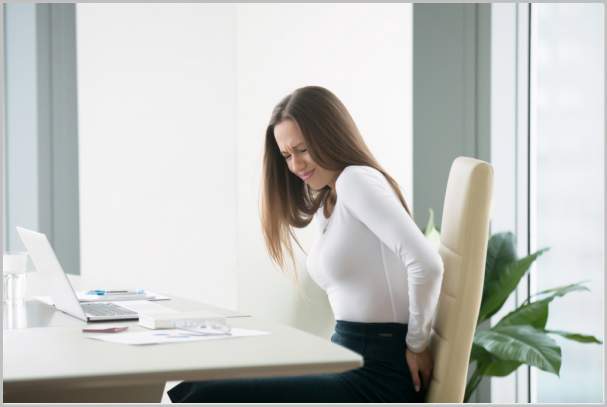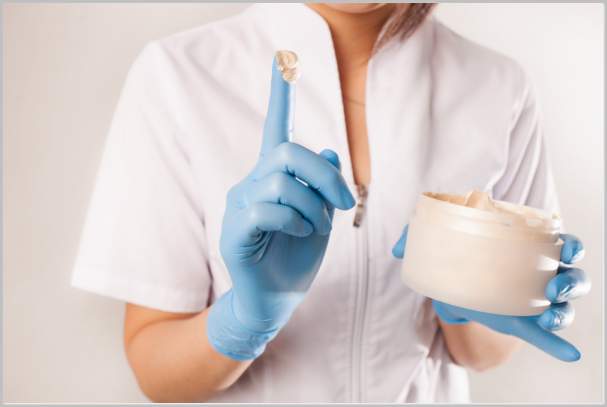
Hemorrhoids refer to swellings or small lumps that develop in the anus and its surrounding areas mainly because of excessive pressure applied to the anal veins. They are sometimes also called piles.
Although hemorrhoid is not a very deadly disease, at least in the initial stages, it has far reaching effects on the individual if left untreated. Needless to say it causes so much discomfort and pain to the patient occasioned by bleeding, itching, psychological stress and social embarrassment. In the final analysis hemorrhoids can lead to serious health problems and in few cases the damage may become permanent.
Hemorrhoid affects both sexes and all age groups are susceptible to it.
Hemorrhoids classified
Seen broadly there are two types of hemorrhoids and those are external and internal hemorrhoids. As their names suggest internal hemorrhoid attacks the inner lining of the anus whereas external hemorrhoid can be seen on the surface near the anus. On the other hand three development phases for hemorrhoids can be distinguished as follows:
Phase one: the anal veins begin to swell due to pressure and other factors associated with hemorrhoids.
Phase two: the affected person develops general feeling of fatigue and discomfort.
Phase three: traces of blood can be seen on the stool passed.
Causes of Hemorrhoid
Some of the common causes of hemorrhoid are:
- Constipation brought about by poor eating patterns and unbalanced diet
- Mental stress
- Abdominal disorders
- Tobacco-chewing
- Sleeplessness and high temperatures
- Lack of physical exercise
- Obesity
- Pregnancy
How to Get Rid of Hemorrhoids
Hemorrhoids are painful. They itch, burn and sometimes bleed. Whole sections of our drugstores are devoted to Over-The-Counter treatments and remedies promising hemorrhoids relief. However, in the long run, many of these ointments only provide more irritation. When asked how to get rid of hemorrhoids, many doctors recommend that we avoid all of the OTC treatments that have ingredients that contain the word “caine”. Since this rules out many of the available hemorrhoid products on the market, I hope you find comfort in knowing that there are even more effective (and cheaper) home remedies for hemorrhoids. Here’s a few:
1. Warm It Up
Fill up your bath tub with about 4-5 inches of warm water. Of course, you can use more water than that, if you want to enjoy a relaxing soak while shrinking your hemorrhoids. Once you’re seated in the water, make sure to bring your knees up, as close to your chest as possible. This allows more of the warm water to get to the area that needs it. If you want to take this remedy to the next level, add a handful of Epsom salts to the bath. Make sure you stir it up before you get in.
Why it works:
The warm water encourages the blood to flow into the area, which then helps to shrink the swollen hemorrhoids. As far as the Epsom salt goes, it helps to constrict the hemorrhoids.
2. Tea For One
Another good hemorrhoid remedy is applying a warm, tea bag to the area. Maybe it’s not as easy as the bath, but it will definitely soothe.
Why it works:
Tea contains an ingredient called tannic acid. Tannic acid will reduce the pain and the swelling. It also helps blood to clot, so if you’re experiencing problems with a bleeding hemorrhoid, then this remedy will be most beneficial. Of course, it will also be warm, when applied, which soothes.
3. Cool It Down
Grab one of your heavy-duty freezer bags and add some ice. Wrap the icy bag in a towel and sit on it for 20 minutes. You can do this as often as necessary, but make sure to take at least a 10 minute break between ice sitting sessions.
Why it works:
Simply, the ice will almost immediately shrink the swollen hemorrhoids.
4. Just A Dab Will Do Ya’
If you’ve found relief from Tucks pads in the past, then this is a great, inexpensive alternative because the main ingredient in them is witch hazel. Soak a cotton ball in undistilled witch hazel. Apply it directly to the hemorrhoids.
Why it works:
Just like tea, witch hazel contains tannins. They are great because it causes the blood vessels to contract, thus relieving the pain and pressure associated with hemorrhoids.
Other Home Remedies:

- Have more fiber: Include more fiber for your diet plan from meals, a fiber supplement (such as Metamucil, Citrucel, or Fiber Disadvantage), or both. Together with sufficient fluid, fiber softens stools and makes them simpler to move, reducing stress on piles. High-fiber meals contain broccoli, beans, grain and oat bran, whole-grain meals, and fruit. Fiber supplements help reduce hemorrhoidal hemorrhaging, irritation, and enhancement. They might additionally decrease discomfort from little pieces of fecal matter that are caught around the arteries. Some ladies discover that increasing fiber causes bloating or gasoline. Begin slowly, and progressively increase your consumption to 25–30 grams of fiber daily. Also, increase your liquid intake.
- Workout and exercise regularly: Average cardiovascular workout, including quick walking 20–30 minutes each day, will help promote healthier and gentler bowel movements.
- Consider time when you feel the urge: Whenever you are feeling the need to defecate, visit the lavatory instantly; do not wait for a more suitable time. Feces may right back up, resulting in elevated stress and pushing. Also, develop a comfortable routine every day, including after a dinner, to use the toilet for a couple moments. It will help you create a normal bowel routine.
- Enjoy regular warm sitz baths: A sitz bathtub is just a hot water bath for the bottom and hips (the title originates from the German “sitzen,” meaning “to sit”). It can be very soothing and will help reduce itching, aggravation, and calms the sphincter muscle. Pharmacies sell little plastic bathtubs that can be placed over a bathroom chair, or you may sit in a normal tub with several inches of hot water. Most specialists suggest a 20-minute sitz bathtub after every bowel motion and 2 or 3 times a day additionally. Take the time to lightly pat the rectal region dry later; don’t rub or clean it aggressively. You may also use a hair dryer instead of a towel or cloth.
- How to treat piles with external creams: Over-the-counter pile creams may briefly help with discomfort. Lotions and suppositories containing hydrocortisone are also efficient, but try not to use them for more then a week to 10 days week, since they could cause your skin to atrophy. Further constricting the skin around your piles. Wet, non-medicated wipes can also be helpful in calming the inflamed area by limiting further irritation.. Ice therapy put against the rectal region for 10 to 15 minutes may also reduce discomfort and swelling. Lastly, sitting on a soft cushion or pillow can also help decrease the swelling of existing piles and stops the forming of new types.
Medical Treatment
Hemorrhoids is a disease that is easy to treat. Amidst the flurry of drugs available on the market for the treatment of hemorrhoids there are some that are often cited as being more effective and easy to use than others. They include are VENAPRO, ZENMED Ziro Cream and AVATROL. The advantage that these drugs have is that they are readily available off the shelf and also online.
Other types of treatment that can help you get rid of the pain include:
- Light Coagulation – The blood circulation to the hemorrhoid is controlled and this causes the affected tissue to shrink and die.
- Rubber Band Litigation – Rubber band is tied on the base of the hemorrhoid and the blood circulation will be cut off and this will result the hemorrhoid to die and fall.
- Cryotherapy – Zeroid is a device that is being used as an option for hemorrhoid treatment. It is a plastic cylinder that is frozen in the freezer. Then it will be introduced in the rectum. It helps the temperature in the rectum to lower. This is usually done twice or thrice daily for about three weeks. It stops the pain, bleeding.
- Injection therapy
- Hemroidectomy – a surgical method used for treating hemorrhoids in its advanced stages.
It is advisable to spot hemorrhoids symptoms early enough so that appropriate treatment can be administered immediately.
An Ounce of Prevention…
Can hemorrhoids be prevented?
The answer is “Yes”. You can avoid developing hemorrhoids by following some or all of the under listed good health practices.
1. Put Your Feet Up
A couple of times a day, make a point to lay back on the couch with your feet up. Your mind will thank you for allowing it to rest easy for a few and your overstressed anal area will greatly benefit from your taking the weight off of it.
2. Eat More Roughage
Okay, I’m sure you’ve heard this one before, but that’s because it’s very important. Research has shown that eating a diet that is high in fiber will significantly reduce the symptoms of hemorrhoids. That means eating more high-fiber cereals, whole grain breads and veggies. An important thing to remember about eating this way, though, is that you must make sure that you are getting enough fluids to allow all of this fiber to pass through your body! If you are not drinking enough water, you will become constipated and then you will be back to square one.
3. Bathroom Behavior Tips
When you feel like you have to go, go. Waiting leads to constipation. Constipation leads to straining. You know the routine.
When you are finished using the bathroom, try to wipe with dampened, unscented, plain, white toilet paper. I know that TP in pretty colors makes the bathroom look pretty, but it also has added irritants and just isn’t worth the risk.
After you’re done with your initial clean up, try using some facial tissue that has an added moisturizer. It will be lubricating and soothing at the same time.
4. For Those Who Sit All Day
I’m guilty of this one myself. If you’re like me and find yourself either chained to a computer all day or to an office chair, make sure to take a lap around the office every hour. Just five minutes of leisurely walking will greatly reduce the pressure on your rectum. It will also help to keep food passing through the intestines, which will help to stave off constipation.
5. Others
- Doing physical exercise regularly
- Drinking enough water and other fluids
- Maintaining a diet rich in fiber
- Following the recommended eating patterns
- Getting enough sleep.
When To Call The Doctor
Hemorrhoids are pretty common and usually can be treated at home. However, some health problems, such as inflammatory bowel disease and bowel infections can present the same symptoms as hemorrhoids do. You should call the doctor if you notice very dark blood in your stool (your poop will look almost black). You should also call the doctor right away if you have significant rectal bleeding, persistent fecal incontinence or if the pain intensifies greatly and suddenly.

